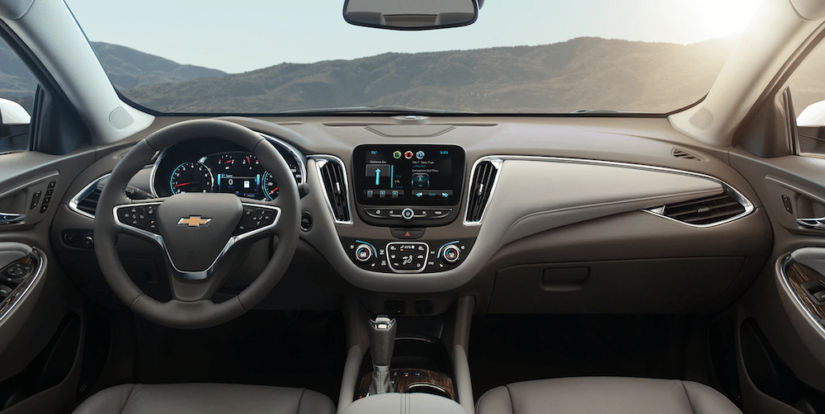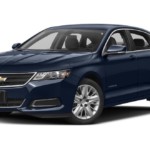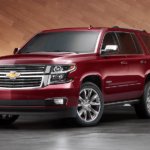It’s fair to say that most of us default to a “buy/own” mindset when it comes to acquiring a new vehicle. And It simply makes good sense to do so since (in most cases) it leads to a period of payment-free ownership. With diligent maintenance, today’s vehicles can last well beyond the 200,000-mile mark, ensuring years of reliable ownership.
That said, not every prospective buyer is as enamored with the idea of a lengthy automotive relationship. For example, they may prefer the idea of driving the newest Chevy Traverse with upgraded technology every few years, as opposed to owning one that is doing little more than aging. That’s just an example, but for such drivers, Chevy Lease deals might be ideal.
As with any decision worth making, there are pros and cons to either scenario. Ultimately, it comes down to the unique demands of your lifestyle, budget and your long-term intentions. That said, let’s look at some of the reasons why a lease option might be the best fit for you, focusing on the ‘pros.’
Lower Monthly Payments
Perhaps one of the greatest arguments in favor of vehicle lease programs is that it can reduce monthly payments significantly. When buying a car, monthly payments against the principal will be increased exponentially by both the approved APR and additional financing charges. When leasing, months payments consist almost exclusively of payments against the principal. This reduces payment amounts significantly, making it a less demanding monthly payment.
Fewer Front-End Costs
In addition to lower monthly payments, many lessees are entitled to lower down-payments (or a complete absence of down-payment, altogether). In addition, the majority of lease programs include a lower sales tax at the time of agreement.
More Car For Your Money
One of the primary motivators for prospective lessees is that a lease makes aspirational vehicles far more attainable. By empowering a qualified lessee to drive a vehicle that they might be unable to purchase due to cost, a lease speaks to both the joy and appeal of driving. This is furthered by…
New Car Every 2-3 Years
In addition to making higher-priced vehicles more affordable, a lessee is also entitled to trading in that vehicle every 24-36 months (based on the terms of the lease). Whether you consider yourself a connoisseur or simply appreciate the status associated with aspirational vehicle, there’s something to be said for always finding yourself behind the wheel of a fresh or recent model year offering. And the ease of leasing trade-in eliminates the hassles an owner might associate with reselling or trade-in of a purchased vehicle.
Warranty Coverage
Of course, another great endorsement on behalf of leasing comes in the fact that most repairs and maintenance will be covered under the manufacturer’s warranty. In fact, the terms of most lease agreements include scheduled and preventative maintenance as part of the conditions.
Business / Fleet Vehicles
Consider for a moment, whether or not your next vehicle acquisition will play a role in your professional life. Are you required or expected to transport co-workers, superiors, vendors or clients at any point? If so, the quality and condition of your vehicle may cause these parties to draw conclusions about you personally. Unfair? Yes, but true nonetheless.
With that in mind, leasing can be an ideal option for young professionals. Not only does it place them behind the wheel of a vehicle that can create a strong, and positive impression, but the lower monthly payments provide additional incentive.
With this in mind, leasing is a favorable option for any person (or company) looking for an affordable means of acquiring high-end vehicles that convey a sense of prestige.
But What are the ‘Cons’ Associated With Leasing?
Of course, there are reasons why prospective buyers might decide that a lease isn’t in their own best interests.
This begins with the absence of ownership. When one purchases a vehicle, they are free to modify it in any way they see fit. And once the vehicle has been paid off, they can look forward to a period of ownership where there are no longer payments to be made. Someone who cycles through lease agreements will always have a monthly payment to be made.
Lease agreements also cover the possibility of added incremental costs in terms of the agreement are violated. For example, such agreements include a maximum amount of mileage to be incurred a year (usually around 10,000 – 12,000 miles) with the option of purchasing more. If your annual mileage exceeds this amount, a lease may not be the best fit for you. And failure to purchase additional mileage (if needed) could lead to significant surcharges.
Surcharges also present themselves in the form of wear-and-tear charges. Remember, a lessee does not own the vehicle and is partially responsible for maintaining the vehicle’s value. This means that everything from minor exterior marks to worn or scuffed upholstery could result in added cost. With this in mind, a lease might not be ideal for families with young children or parties with active outdoor lifestyles.
There are also charges associated with early termination of a lease. With all of these factors in mind, it should be easy to identify whether or not a lease is right for the unique demands of your lifestyle and budget. One of the most important things to keep in mind is the importance of understanding the contract into which you are entering. A lease agreement might feel unfamiliar in terms of both conditions and terminology. Make sure that you understand all terms, conditions, and expectations of the contract before you enter into it.
Is a Chevy Lease Right For You?
If you’re interested in the opportunity to enjoy new Chevy every few years, with none of the stress of ownership, a Chevy Lease might be the perfect solution. Visit www.chevrolet.com and find out for yourself.



